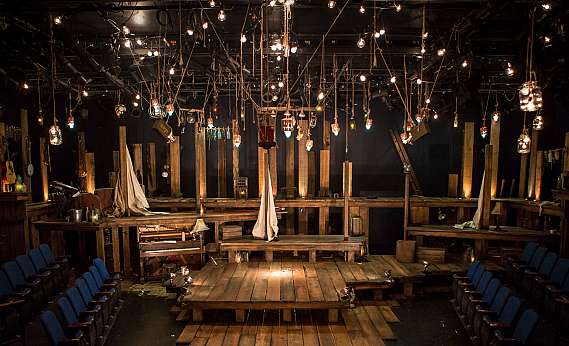The rehearsal process for Heartbreak House has proved to be rich in conversations that speak to how this production is illuminating the play’s relevance in connection with our society today. By making the decision to move the setting forward in time (from Edwardian England circa 1916 to 1940 at the start of WWII), the cast and production team have helped renew the immediacy of the play and bring it into the 21st century.
Director Bill Brown shared some specific reasons for justifying how the change in setting would help modern audiences connect with a story and characters that some might be inclined to write off as dated and irrelevant. At its height, the British Empire was the largest empire in history and the foremost global power, holding sway over roughly one-quarter of the world’s population at the time. Bill felt strongly about setting the play on the cusp of the war that would ultimately instigate the decline of this immense world power.
There have been several times in rehearsal when we have gotten into discussions about the similarities between Shaw’s point of view, the new setting, and the current state of the world. Bill once commented on the growing concern of decline that faces our own nation, having been mired in the throes of an economic crisis for years now and participating in a war that many people have become numb to. The Shotovers, an eclectic Bohemian set who occupy the manor where the play takes place, are a family that is currently struggling to make ends meet because of the patriarch’s inability to design and create new weapons of mass destruction. Yet, they possess the truest sense of how to effectively combat the bitterness and idleness that permeates the society of the time–and of every time. It was also interesting to draw parallels between the way the characters in the play treat Boss Mangan, the stout industrial capitalist, and the way we have lost faith in our own leaders of industry.
It’s become increasingly clear how a script this rich and dense, one that can stir and communicate across time, presents an even more invigorating appeal when experienced in performance.


No comments yet.